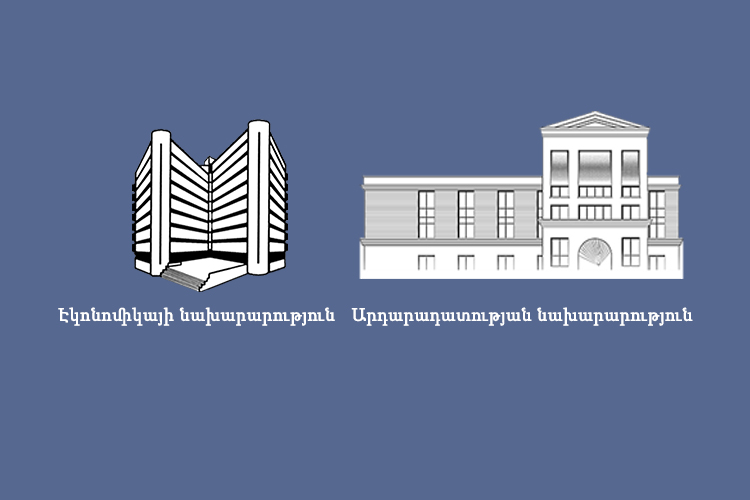Works are underway to improve the business environment
During the session on April 8, 2021, the Government of the Republic of Armenia approved the draft laws on making amendments and addenda to the RA Law on “Joint stock companies” and other related laws.
A number of provisions proposed by the draft may be of significant practical importance in terms of increasing the flexibility of legal mechanisms for conducting business in Armenia and from the perspective of protecting the rights of small shareholders (investors) and are aimed at solving the problems raised by the private sector.
The most important amendments are listed below:
- According to the current regulations, companies have the possibility to issue only different classes of privileged shares, whereas the Draft proposes to introduce also the classification of simple (ordinary) shares. In such a case, it will become possible to grant different rights to shareholders by issuing different classes of ordinary shares, set different nominal values of shares of different classes and define different voting rights at the assembly. Such proposal is based on the experience of countries with advanced regulations and could, among other possible positive effects, have a significant impact on venture capital funds “angel investors” to make investments in start-up companies.
- According to the current legislation, share acquisition by employees is possible with very strict regulations and only at the expense of redeemed shares. In recent years, the use of “restricted stock units” has become widespread in various countries. The mechanism of rewarding employees for their work with company shares is a fairly common tool that provides an opportunity to encourage employees to prevent labor turnover, which in turn can indirectly prevent professional emigration (“brain drain”) from Armenia. The Draft proposes introduction of a flexible system for share acquisition by company employees. According to the proposed regulations, shares or derivative financial instruments provided to employees will be considered as employee incentives by the terms of the Labor Code of the Republic of Armenia.
- The Draft proposes to amend the legal requirement for mandatory liquidation of companies with negative equity (net asset value) after the end of the second and each consequent fiscal year. In particular, in such a case, according to the Draft, the general assembly of the company’s shareholders may make a justified and reasoned decision to continue the company’s activities. The proposed change is particularly important to ensure the smooth operation of start-ups that are still in the process of actively raising funds and producing least viable products.
- According to Article 40 of the current law, the issuance of unsecured bonds is allowed at least three years after the state registration of the company, provided that at least two annual balance sheets of the company are approved in accordance with the established procedure. As a result of this restriction, a number of start-ups are deprived of the opportunity to attract financing through bonds issued in Armenia, as such companies usually do not have sufficient assets to provide bond security. Adoption of the liberal approach proposed by the Draft will facilitate the issuance of various financial instruments and attraction of financial means through them.
- According to the current regulations, the existence of the company’s fractional shares is excluded. Fractional shares resulting from corporate actions (for example, consolidation of shares) are subject to mandatory buy-back by the company. This specific regulation has caused significant problems in protection of rights of minority (small) shareholders both in Armenia and in the international practice. The Draft proposes to introduce the mechanism of fractional shares, which will deprive large shareholders of the legislative incentive to abuse the regulation of mandatory buy-back of shares.
- At the same time, the Draft proposes to introduce the right to demand (“squeeze out”) mandatory selling of the company’s shares by large investors (95% and more of eligible votes) and the right to demand (“sell out”) mandatory acquisition. The study of the mentioned mechanisms shows that the right to demand mandatory selling of shares aims to increase the efficiency of the joint-stock company’s management and activity and stand as condition for realizing effective economic activity.
- At present, the company’s board of directors is charged with the decision-making authority to conclude large transactions related to property not exceeding 50% of the balance sheet amount of the company’s assets. Based on international experience, the Draft also proposes to liberalize the regulations on large transactions related to acquisition or alienation of the company property.
- It is proposed to replace the requirement of being paid out of the distributed shares at the time of the company’s establishment with the obligation to pay for them within a specific timeline defined by the decision on establishment of the company or agreement or charter, but not later than three months after the company’s state registration.
- It is also envisaged to liberalize to a specific extent and make more flexible the possibilities of delegating the powers of the company’s general assembly of shareholders, board of directors, and executive body.
BUSINESS ENVIRONMENT
(+374 11) 597 539
- BUSINESS ENVIRONMENT
- (+374 11) 597 539
TOURISM
(+374 11) 597 157
- TOURISM
- (+374 11) 597 157
QUALITY INFRASTRUCTURES
(+374 11) 597 167
- QUALITY INFRASTRUCTURES
- (+374 11) 597 167
PRODUCT LABORATORY TESTING
(+374 11) 597 166
- PRODUCT LABORATORY TESTING
- (+374 11) 597 166






